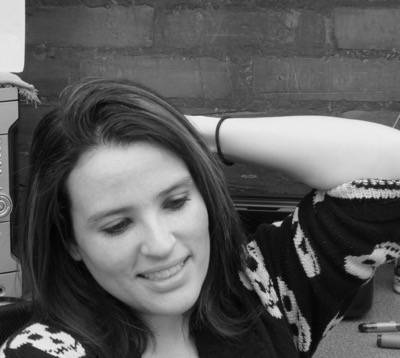
Lina Ferreira
Fiction
Lina Ferreira is the author of “Drown Sever Sing” and currently works as a visiting assistant professor in The Ohio State University. She is a graduate of The University of Iowa’s Creative Nonfiction and Literary Translation programs, and her work has been featured in Arts and Letters, The Chicago Review, Fourth Genre and Brevity, among others.
Cain
Before the invention of murder there were Cain and Abel, and they were both brothers, and they were both black.
There wasn’t a lot of record keeping back then, but it’s not hard to fill in the details.
Abel was better than Cain. Maybe he never forgot to visit his mother on Sundays, and never turned down a good roast. Maybe Cain was a vegetarian, maybe. Details. What is certain is the color of their skin. Black. Black like their mother, black like their father. Black like toucan wings and ollas de barro, and black like the God that made them.
Cain was a little older, maybe. But maybe they were twins. It’s possible. Or maybe Abel was one of those slow-to-come siblings who waits seven years, or twenty five, before stitching up a body inside their mother Eve. And maybe he was easy to kill.
It’s possible they were both only children when it happened. Or when it started. When Cain began drinking and yelling at girls who passed by their house to lift their skirts and show the goods. By age eleven, likely, he had a bottle in his hand and loaded dice in his pocket. While his brother, their parents’ favorite, never missed mass or broke a promise. Which maybe at first didn’t bother Cain. But maybe by the age of eleven or twelve Cain was fed up with it, so he invented murder.
There are reports of a jaw being used, but this is a mistake. That’s another story. But as first things go, they are usually messy, and clumsy, and hardly ever go as planned. So it’s very likely the matter was too grisly to discuss, so maybe no one talked about it. Likely no one could, anyhow. “Murder,” was Cain’s contribution to the dictionary, a brand new fangled thing, stumbling on stilt and still wet with afterbirth. And people must have run around for days trying to cobble incongruous words together to make sense to figure out what to call it, and make sense of it, and pin it down with a word like a pin through a beetle’s back. But because God is omnilexical, down He came looking for Cain the minute he’d heard what Cain had done.
Down from a cloud, down from a tree, down from the top of a red brick house to speak to Cain with a voice made of gravel and dirt and broken glass and knotted rope. And Cain trembled. From his toes, through his knees. Up his spine, like smoke, like vines, as if weevils were chewing holes through his bones. Cain trembled.
His organs came loose and rattled inside him like stones in a tin can. His eyes shrunk inside his sockets and he shuddered as if he had his brother wrapped around his throat.
Not maybe. Certainly. Cain heard God’s voice and he must have heard his brother somewhere in there too because it shook him from skin to core, and back again, and it shook the black right off Cain’s face, and down his arms, and belly and back. And it soaked into his shirt, and socks, and Cain became as white as the underbelly of a pupa, became translucent as hatched snakes. White like madness and blindness, became another brand new thing too.
“ ‘Cain’ is based on a legend told in the Choco region of Columbia. ”
